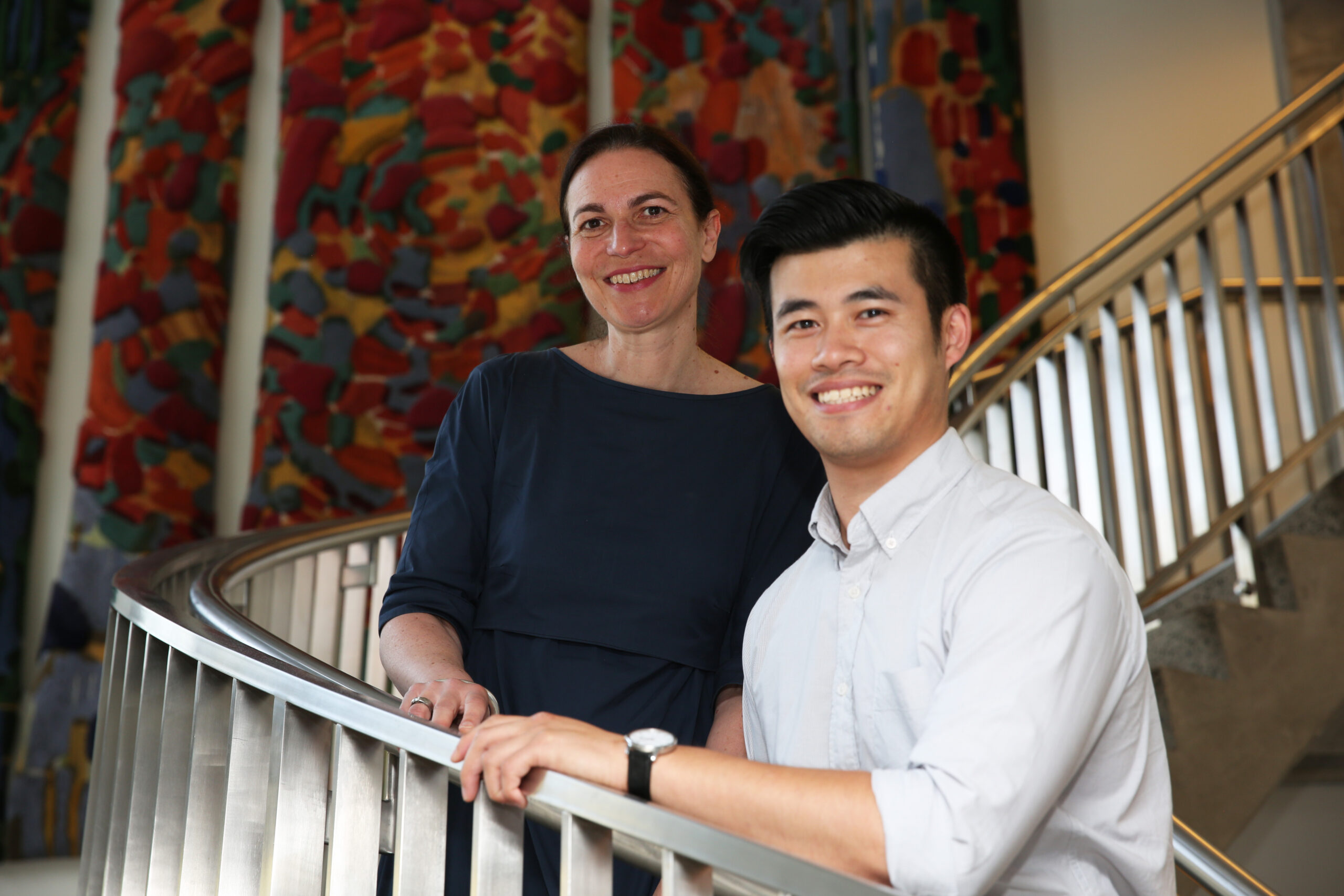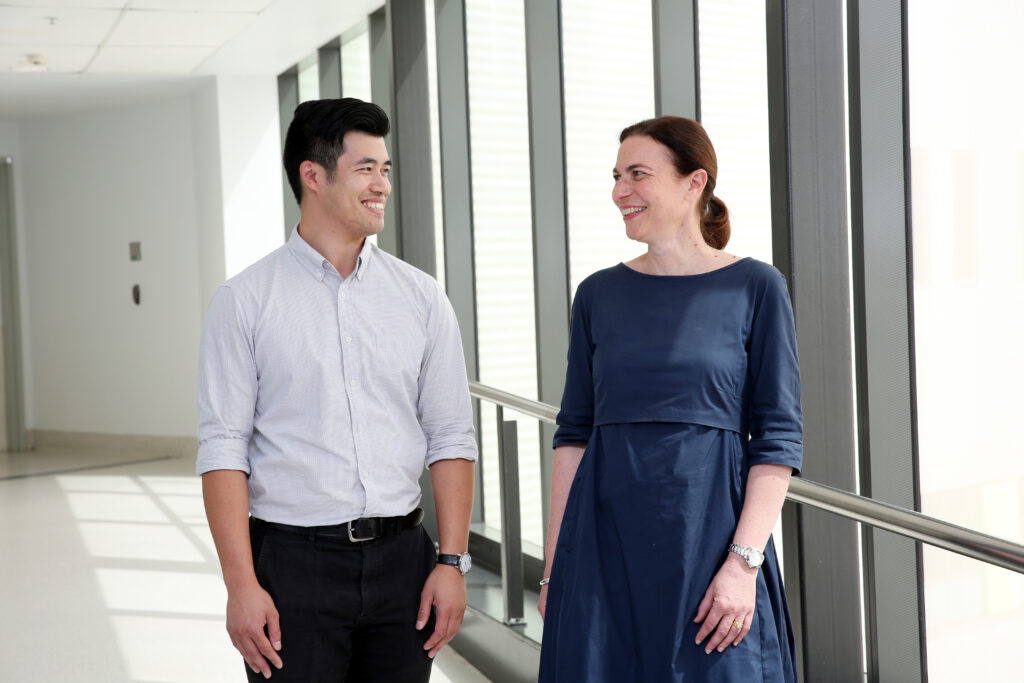
Dr John Mach, Postdoctoral Research Fellow and Laboratory Manager in the Department of Ageing and Pharmacology at the Kolling Institute talks to the NORTH Foundation about his journey as an early-career researcher and how he hopes to re-evaluate ageing for better lives.
Medication, despite its ability to prevent and treat chronic illnesses among older Australians, also has the potential to cause significant harm*.
No one understands this better than Dr John Mach, who attributes his decade-long career as an ageing and pharmacology researcher to his curiosity and ability to approach challenges as opportunities to promote healthy ageing.
“Sometimes knowing is not enough, and I am driven by the opportunity to understand the mechanism behind what drives change. I am always thinking about patterns and how to resolve them and have been fortunate to be able to apply my skillset and curiosity in my role as a researcher.”
Inspired by the opportunity to make a real impact to the health and wellbeing of the community through research, Dr Mach says that his first taste of working and being mentored by his supervisors in a laboratory at UNSW was instrumental in his decision to pursue a career in medical research, specifically with a focus on pharmacology.

Professor Sarah Hilmer + Dr John Mach
In 2010, Dr Mach joined Professor Sarah Hilmer’s ageing and pharmacology research group as a research assistant at the Kolling Institute and has since worked as part of the Ageing and Pharmacology Laboratory for more than a decade.
The Kolling Laboratory of Ageing and Pharmacology is part of the Penney Ageing Research Unit at the Royal North Shore Hospital which aims to improve healthy ageing in older people – focusing on prevention and better management of geriatric syndromes including frailty, falls and confusion, and optimising the use of geroprotective agents to extend health spans.
For the last decade, Dr Mach’s research focus has been on ageing and pharmacology – particularly how to optimise medication use by older people. One of the key aims of his research is identifying when polypharmacy in older Australians has more harm than benefit in the treatment of medical conditions.
“We know that taking multiple medications is common in old age, and that the more medications people take, the more likely they are to have adverse drug reactions.”
Under the guidance of his mentor and supervisor Professor Sarah Hilmer, Dr Mach conducts clinically relevant experiments to understand the mechanism by which harm is caused by multiple medications and how it can be minimised or reversed. This includes probing high risk medications, as measured by the pharmacological risk assessment tool, the Drug Burden Index.
Dr Mach feels strongly that his purpose is to bring his research to the bedside and is now working with researchers within the Laboratory of Ageing and Pharmacology to unravel the mechanisms that can predict when harm may occur from multiple medication use.
“This knowledge may have the potential to prevent adverse drug reactions that are currently unlikely to be detected until too late”
Dr Mach is now starting to investigate the effects of polypharmacy on beneficial changes from geroprotective agents. These are medications or supplements that people may take in the hope that they will increase their years of healthy life.
“Understanding the use of geroprotective agents when taken with multiple medications is critical, particularly for older people who use them to increase healthy ageing.”
“We believe our research will provide an evidence-based resource to guide clinicians when prescribing medications for older patients in hospitals, aged care facilities and across the broader community.”
Ultimately, Professor Hilmer and Dr Mach hope that their research will guide healthcare professionals internationally to better understand drug interactions and improve patient outcomes.
Reflecting on his journey as an early-career researcher with the Laboratory of Ageing and Pharmacology with the Kolling Institute, Dr Mach’s advice for others contemplating a career in medical research or just wondering how they can make a positive impact on the community, is to continue to see a better tomorrow.
“Ageing isn’t something that people often think about much until they are much older, but with advances with medicine we will all live healthier for longer, and will likely be thinking about ageing more often.”
“With Australians now living longer and enjoying more years of an active lifestyle, I believe that my research in ageing, polypharmacy and hopefully geroprotective agents will not only benefit the older generations, but the younger generations as well.”
Although Dr Mach’s research continues to progress, there is still a long way to go as he requires funding for research costs and equipment to undertake and continue the life-changing research projects to completion.
By choosing to make a monthly donation, you can help us provide long-term strategic funding within the Kolling Institute. If you are interested in directly supporting Dr Mach and his team at the Kolling Institute, please click here.
*Hilmer, S. N., Gnjidic, D., Le Couteur, D. G. Thinking through the medication list: appropriate prescribing and deprescribing in robust and frail older patients. Australian Family Physician 2012. 41: pp. 924-28.

